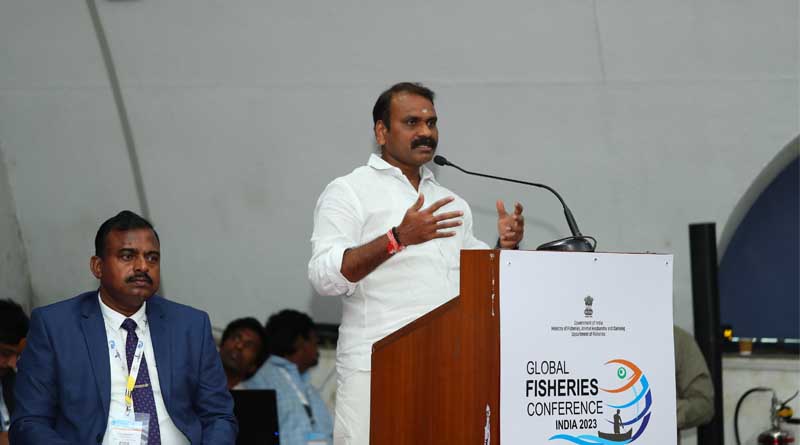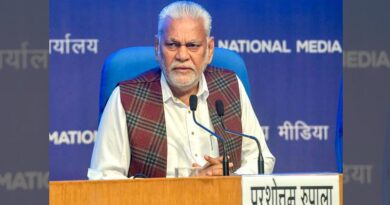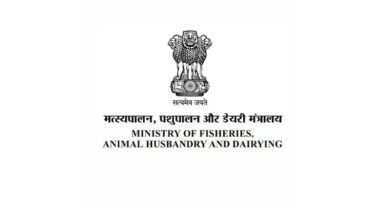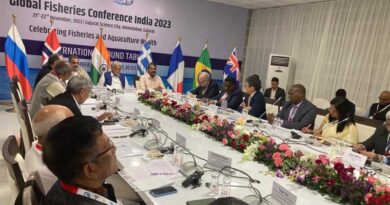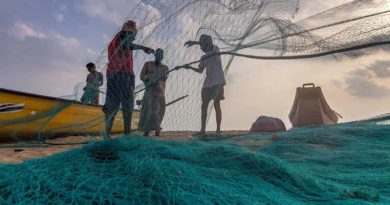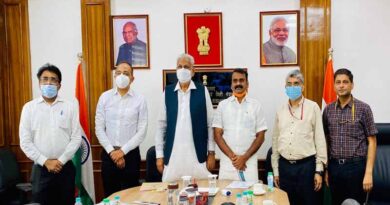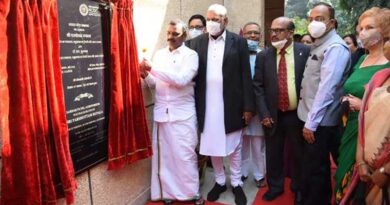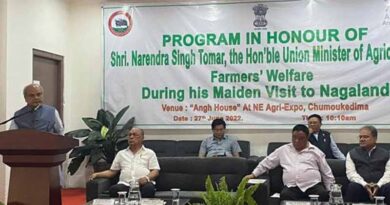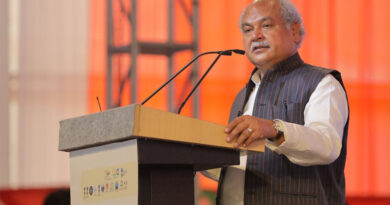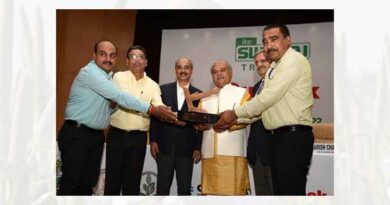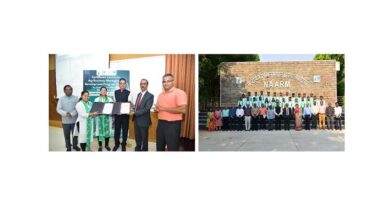Indian Government committed to support traditional fishermen for deep-sea fishing: Dr L Murugan
23 November 2023, New Delhi: In a significant move to boost India’s fisheries production, Minister of State for Fisheries, Animal Husbandry and Dairying Dr. L Murugan today asserted the Central government’s unwavering commitment to supporting traditional fishermen in their transition to deep-sea fishing through the schemes namely the Blue Revolution and the Pradhan Mantri Matsya Sampada Yojana (PMMSY). The Minister stated this today at a technical session on ‘Deep Sea Fishing: Technology, Resources, and Economics’ at the Global Fisheries Conference India 2023 being held at Gujarat Science City, Ahmedabad.
Dr. Murugan said that the government is providing up to 60% financial assistance to traditional fishermen to convert their vessels into deep-sea fishing boats. Additionally, loan facilities are also available to facilitate this transformation. He emphasized the need for modern fishing vessels equipped with in-built processing facilities to maintain international quality standards for deep sea resources like tuna. Acknowledging that traditional fishermen currently lack these capabilities, Dr. Murugan ensured that the government is committed to addressing this gap.
Dr Murugan further said that Tuna fishes are in high demand worldwide and India has the potential to increase its tuna fishing capacity. He called for more start-ups to enter the deep-sea fishing sector and for research to focus on reducing fuel costs and exploring the use of green fuels in fishing boats. There is a need for research and design in upgrading fishing vessels to effectively harness the potential of deep-sea fishing sustainably.
Highlighting the high value of the deep sea resources, Deputy Commissioner of Fisheries, GoI, Dr Sanjay Pandey said that India Ocean yellowfin tuna has an end value of more than 4 billion US dollars.
World Bank Consultant, Dr Arthur Neiland said despite the promising potential of yellowfin and skipjack tunas in India’s EEZ, with an estimated harvest of 179,000 tonnes, the actual harvest is a mere 25,259 tonnes, indicating a utilization rate of only 12%. He emphasized the need for investment from the public and private sectors in deep-sea fishing which could generate economic, social, and environmental benefits. “Utilising India’s strong institutional base, with expertise in fisheries science and management, fish processing and infrastructure will also be beneficial for the deep-sea fishing development plans”, Dr. Neiland said. He added that enabling an environment to encourage stakeholder participation and investment, technology and expertise, and regional and international collaborations and partnerships is equally important.
A panel discussion, held on this theme, proposed that collective and inclusive efforts addressing the concerns of all the stakeholders are necessary to develop a systematic framework for the development of deep-sea fishing. Deep sea consultant, NIOT, Chennai, Dr. ManellZakharia, Scientist-G MoES, Dr. Prashant Kumar Srivastava, Senior Scientist of ICAR-Central Marine Fisheries Research Institute (CMFRI), Dr. P Shinoj and Scientist D of CMLRE, Dr. Hashim were the panelists.
Deep sea fishing is undertaken beyond the limit of territorial waters, which is 12 nautical miles from the shore, and within the Exclusive Economic Zone (EEZ) of 200 nautical miles from the shore.
Call to enhance blue finance for innovations in aquaculture
In view of a range of critical threats posed by climate change and increasing demand for food and nutritional security, Simon Feunge-Smith, Senior Fishery Officer of the Food and Agriculture Organisation of the UN (FAO) called for enhancing blue finance for innovations and developments in the aquaculture sector. According to him, global aquaculture will provide 59% of fish for human consumption by 2030. Simon Feunge-Smith added Asia provides 89 % of global aquaculture production with 82 million tonnes. Mostly small-scale enterprises in Asia are contributing more than 80% of total production. The sector creates jobs for 20.5 million people in the primary sector. Referring to the promotion of sustainable fisheries and aquaculture, he suggested supporting sustainable practices by small-scale fisheries and aqua-farmers.
Also Read: Global Fisheries Conference 2023 to be organized in India on 21-22 November at Ahmedabad
(For Latest Agriculture News & Updates, follow Krishak Jagat on Google News)

